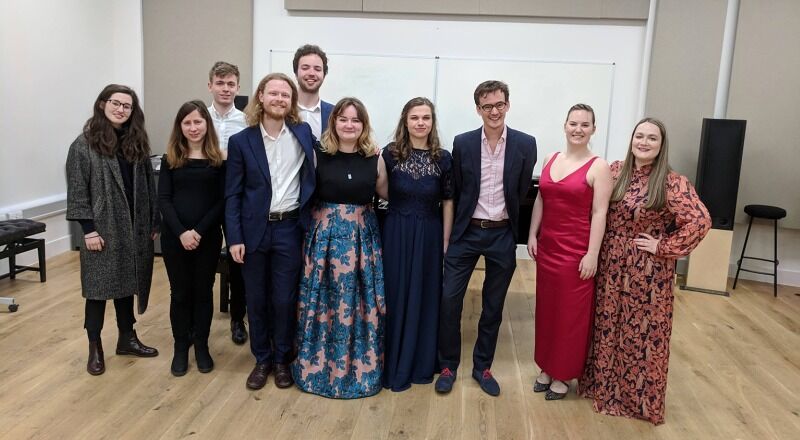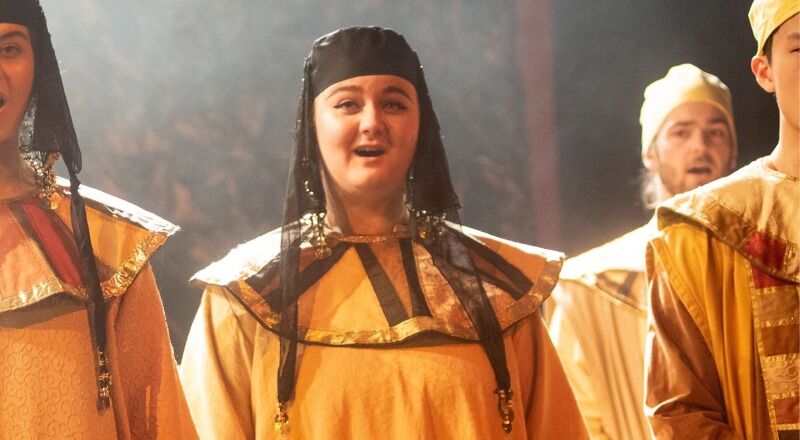Helena Townsend joined Royal Birmingham Conservatoire in 2016 and is currently studying BMus (Hons) Vocal Performance. She discusses with us her fourth-year experience, the success of her live performances and what advice she would give to students who are looking to study at RBC.
As a fourth-year vocal student at Royal Birmingham Conservatoire, I truly feel that deciding to study here was the perfect choice for me. Anyone who studies here will tell you that the department and the Conservatoire as a whole feels overwhelmingly friendly. We’re quite a small institution and an even smaller department, and you really feel like you’re known by staff and that they are invested in helping you get the most out of your time here.
In terms of vocal department staff, Paul Wingfield (our head) is a real asset. He works as a conductor and répétiteur, rather than a singer, so he has true on the ground insight into how the opera world is currently working, and how to bring this to RBC. On the other hand, our deputy head of department, Jonathan Gunthorpe, is a singer primarily, and his knowledge of the working and teaching worlds combined with Paul’s mean that you get a well-rounded and extensive sense of what is required in the “real world”, and how to achieve this for yourself.

One of the main reasons I decided to study at RBC is the breadth of performance opportunities that are available. In addition to two repertoire classes a week (where you and your fellow singers share pieces you have been working on), you are able to audition for prizes and operas from second-year. Having these opportunities so early on has been fundamental to my development as a singer. Prizes give you opportunities to work collaboratively with student accompanists and further your repertoire, as well as providing vital audition practise and maybe even earn a bit of cash.
Operatically speaking, the department typically has a spring and a summer production, and we do a selection on Opera Scenes in the autumn term. The intent with Opera Scenes is that if you audition, you will be involved in some form, and having this opportunity in second-year is invaluable, both in terms of stage and performance experience, as well as working with your peers in other years. The spring and summer productions are also a good opportunity to get some performance experience, both in terms of chorus and principles.

In my second year, I was involved in The Magic Flute as a chorus member and found the entire experience to be so valuable and rewarding, even though the amount of music we sang was relatively short! I also had the opportunity to perform the role of Prospero in The Enchanted Island in my third year, and being able to sing a principal role at 22 was a rare but wonderful experience!
Aside from singing specific lessons, we also do language classes, as well as stagecraft and movement. These lessons help you to see singing and all of its components (there are more than you think!) together, and how to work at all of them to come out of your degree a fully rounded musician.
If you’re considering choosing RBC for your studies you’re considering somewhere that will nurture you and your specific needs, and give you all the training and opportunities required for you to leave your degree feeling that you are ready to be the best musician you can be.
Conservatoire Courses
Find out more about our courses
